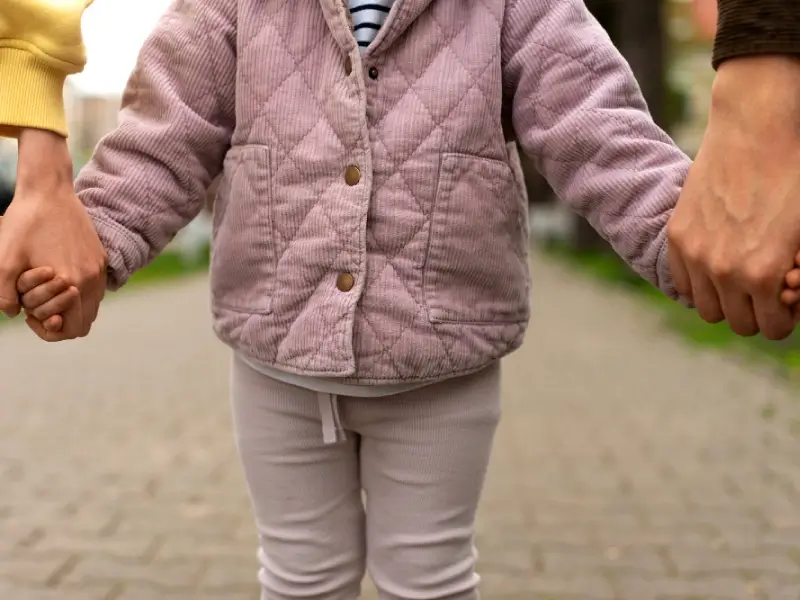Our Services

Prefer to talk?
There are many ways you can contact our team.
Call 01708 398 851
Email info@signaturelaw.com
Experienced in dealing with complicated and sensitive matters.
As seen on
Adopting children can be a wonderful way to build or add to your family, as well as providing a home for children who need one. However, there is a strict adoption process you will need to go through and a number of legal issues that can arise in connection with adoption. Having the right legal advice and support is therefore essential.
Our adoption lawyers have many years’ experience in this area of child law and can provide you with the support you need. Call our expert adoption lawyers today on 01708 398851 or complete our online enquiry form.

Our child lawyers have extensive experience in adoption law, having helped a wide range of families to deal with everything from adoption applications and assessments to parental rights, birth parents’ rights and alternatives to adoption
We understand the hurdles and challenges faced by people wishing to adopt can be significant, which is why we are there to give our full support and guide you through each stage smoothly and sensitively.
You will always know where you stand from a legal position, as well as having a full understanding of what you can expect, and what your options are every step of the way.
Start your adoption enquiry today.
Give us a call or fill out the contact form and a member of our team will get in touch to discuss how we can help.
We’re available Monday to Friday, 9:30am to 5:30pm (excluding bank holidays).
When a child is adopted, they cease to be the legal child of their birth parents and instead become the legal child of their adoptive parent(s). Once adopted, the child loses any automatic right to inherit money or property from their birth family, but gains the same inheritance rights from their adoptive parents.
The birth family’s right to information about the child and their right to make decisions about them are revoked and ‘transferred’ to the adopting family. Sometimes adopted children continue to have some contact with the birth family, although this usually is in the form of letters once or twice a year.
The authorities quite rightly make sure that rigorous checks are carried out when deciding if people are allowed to adopt children. After all, every child deserves responsible parents and a stable home.
Adoption is a very serious step – that’s partly because as soon as you adopt a child, they legally become a member of your family, and cease to be a member of their birth family. An adoption agency will help to guide you through the process, but it is wise to take legal advice from one of our specialist family lawyers before you start the process.

International adoption involves adopting a child from overseas who is without parents or is being raised in a children’s home. It can also involve adopting the child of a family member if you or your partner were born outside the UK.
This is a complex and highly specialist area of law that involves heavy scrutiny from both the authorities of the child’s country of origin and the UK authorities to ensure that those adopting are able to provide for the child emotionally and financially. The recognition by the UK of international adoptions is covered by several pieces of legislation including the Adoption and Children Act 2002, the Adoption Order 1973, and the 1993 Hague Convention.
It is crucial to seek expert legal advice in order to navigate the legal aspects of international adoption and ensure that the process runs as smoothly as possible.
We can provide advice and representation in the following areas:
To adopt, you must be over the age of 21 and resident or domiciled in the UK. Single people can adopt by themselves or a couple can adopt together – this includes civil partners and unmarried couples in a long-term relationship including same sex relationships. The only exception is that you can’t adopt a child with your own sibling, parent or grandparent as a co-adopter.
It is possible to adopt if you have a criminal record, depending on the time and nature of the offence. However, having a criminal record may count against you during an adoption assessment – the adoption service needs to be satisfied that you will be a suitable parent for the child.
The child who you are adopting must be under 18 when you apply, although you have to start the process much earlier than their 18th birthday. Adults (anyone over 18) cannot be adopted.
It’s possible to adopt a child in your family who you care for but isn’t your son or daughter – for example, a grandchild, nephew, niece or cousin.
It’s also possible to adopt your stepchildren if both their birth parents agree. It’s important to remember that there are alternatives to adoption in these situations.
If you’re looking to adopt from outside your immediate family circle, you can seek to adopt a child who has been relinquished by their parents for adoption.
Similarly, you can adopt children who have been the subject of care proceedings – in other words, removed from their birth parents by a court due to the risk to the child’s welfare. This includes children in care who you’ve fostered.
To adopt a child, you must first have a positive assessment from the local authority. Then you are matched with a child or sibling group. The child (or children) are placed with you and finally, once they have settled in, you must apply for an adoption order from the court.
The first step you’ll go through is a two stage adoption assessment process which confirms your suitability. This lasts around six months and includes criminal record checks (minor offences may be discounted) as well as health checks. If you’ve adopted or been a foster carer in the past, you can often be fast-tracked through the first stage of the assessment.
After you’ve been approved, matching you with a child can begin. The Local Authority must check with the child’s birth parents that they are willing for the adoption to happen, unless a court has decided to override their wishes.
You can’t adopt a child until the family court has decided whether adoption is the right course of action for them. However, it’s possible for prospective adopters to foster a child while a court hears their case and decides whether or not they should be placed for adoption.
Assuming the court decides that the child should be adopted, the adopters have already been ‘matched’ with the child and the adoption can move forward more quickly. This allows the potential adopters to develop their relationship with the child, although until the court case has come to an end, the birth parents may still have significant involvement in their life as well.
Our adoption lawyers are regularly involved in straightforward matters, such as step parents adopting their stepchildren, to the most complicated and contentious issues, such as dealing with adoption challenges from a child’s birth parents. With our expertise, we can help you successfully navigate all of these issues, making adoption as smooth and stress free as possible
Our expertise in this area of law and our long-standing reputation in the field means not only are we well equipped to deal with the most complex of cases, but we have also built solid professional relationships with the decision makers, courts, and experts in the field.
To schedule a no-obligation consultation with our adoption lawyers, simply call 01708 398851 or complete the online enquiry form.